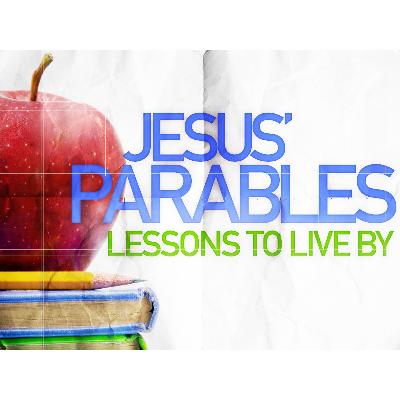SERMON SUMMARY
One of Jesus’ most important lessons on the afterlife is given in the form of a parable, the story of the rich man and Lazarus (Luke 16:19-31). In it, he pulls aside the curtain and gives us insight into ultimate reality. He reveals what lies on the other side of the grave. Jesus opens this parable by contrasting two people whose lives could not have been more different—one rich, one poor. A more dramatic contrast can hardly be imagined—two men at the opposite poles of affluence and misery. Both men were Jews, but the rich man ignored God’s command to care for his poverty-stricken fellow Jew. This rich man was storing up treasures on earth, as opposed to heaven. A superficial evaluation might reveal Lazarus as the loser and the rich man as a Scrooge-like tightwad who selfishly ignored the needs of his destitute brother. But there is a deeper contrast between these two men. It is not visible to the human eye, and is revealed only after death. It has nothing to do with economic status, but centers around their contrasting destinies (vv. 22-23).
Lazarus’ death probably came as a surprise to no one. He was a miserable, sickly man. Those Jews listening as Jesus told this parable must have been shocked at his eternal destination. You see, conventional Jewish wisdom suggested that misery on earth was due to divine disapproval in heaven. On those terms, Lazarus would obviously qualify as a man under God’s punishment. Instead, we read that the angels carried him to Abraham’s side. Among the Jews, Abraham was considered to be one of the godliest men who ever lived. To say that Lazarus was reclining at Abraham’s bosom vividly expresses Lazarus’ exalted position of honor and intimacy in heaven. This is quite a contrast from Lazarus’ previous estate on earth.
Well, the rich man also dies. Money and luxury cannot follow him past the grave. No angels carry him to heaven, rather he finds himself in hell, where he is in torment. Again, quite a contrast from his previous estate. We are told that the rich man made two requests of Abraham: send Lazarus to relieve my thirst (v. 24) and send Lazarus to warn my family (vv. 27-28). It is interesting that even in his humbled state, the rich man still sees Lazarus as a servant to meet his needs, whether to quench his thirst or to serve as an errand boy to warn his family. This parable presents us with four principles regarding the afterlife: Principle 1:
Each of us faces one of two possible destinies at death: either we will spend eternity with God in heaven, or we’ll spend eternity apart from him in hell. It all depends upon our response to Jesus Christ. Friends, hell is a real place, and you don’t want to go there. Jesus spoke often of eternal judgment. According to the New Testament, hell is the immediate destination of all unbelievers—those who reject Christ. Perhaps the most awful thing about hell is that it is final and irreversible. The rich man had no hope of escaping hell’s torment. We are told that there is a great chasm fixed between heaven and hell so that no one can cross from one to the other. Principle 2:
God has revealed himself sufficiently through the Bible such that we have no excuse for our unbelief. The rich man was in hell because he had failed to respond in faith to the God whom his Old Testament Scriptures revealed. Look again at the rich man’s second request of Abraham (vv. 27-31). This is not merely the earnest, compassionate request of a man on behalf of his doomed brothers. Implicit in the request is an attack on God himself. God needs to do nothing greater than what he has already done in giving men the Scriptures. His word is clear, sufficient, and powerful. The rich man’s brothers do not need a message from the grave. They need to respond the message God has already sent them in the Scriptures, to which they have ready access. And people who are not changed by Scripture will not be changed by a miracle. That is why Abraham refuses the rich man’s request. It’s not because he doesn’t care for the fate of the rich man’s brothers, but because the request is futile. Principle 3:
We need to share Christ with our friends and family members while we still have the opportunity. After they checked out of this world, neither Lazarus nor the rich man had the opportunity to warn others of the awesomeness of heaven or the awfulness of hell. Most of us die unexpectedly. At death, whether yours or theirs, your opportunity to share with friends or family what God has done in Christ on their behalf is lost. Principle 4:
We must not neglect those in need, when it is within our ability to help. The rich man failed in his obligation to reach out to his poor countryman. The Old Testament was clear on this point (Deuteronomy 15:7-8). We have a biblical obligation to help those who are in need. In fact, one of the Biblical reasons for working is so that we can have something to share with those in need (Ephesians 4:28).
Be generous with the resources God has entrusted to you. We are not meant to be storehouses, but conduits of God’s grace.
APPLICATION / CHALLENGE
- Assure your eternal destiny by placing your trust in Christ. Click here to learn more.
- Reach out to your unchurched friends and family members.
- Demonstrate Christian love by sharing some of your abundance with those in need.


